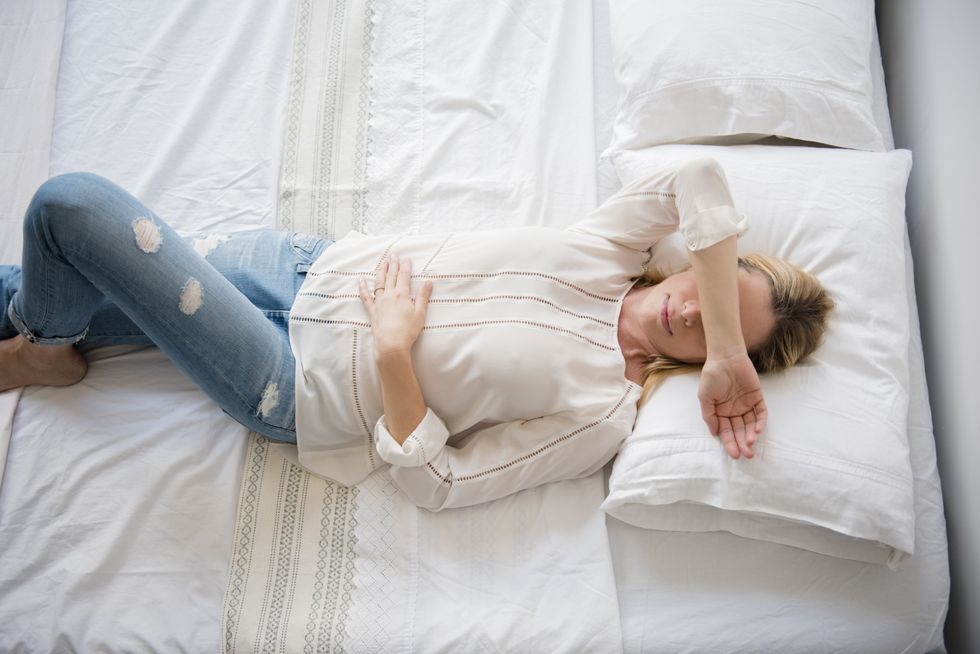Over 65s who have poor sleep given dementia warning - how to improve your sleep

Britons get an average of six to eight hours of sleep a night
Don't Miss
Most Read
Sleep has lots of health benefits, including lowering the risk of dementia.
Research showed over 65s who sleep less than five hours a night are more likely to develop the illness.
An expert has shared how diet changes can improve your sleep.
Research published by Harvard Medical School followed 2,800 people aged 65 and over.
It found those who sleep under five hours a night are twice as likely to develop dementia compared to those who sleep six to eight hours.

Poor sleep can increase the risk of developing dementia
|GETTY
Another study published by the publication showed similar results - with those who sleep less than six hours a night increasing their risk of the illness by 30 per cent.
Most Britons do get between six and eight hours of sleep a night, according to research by YouGov.
However, it showed 20 per cent of women and 14 per cent of men take an hour or longer to fall asleep.
NHS dietitian Kathryn Kelly partnered with Next to share the diet changes Britons can make to help them get a better night's sleep.
Kathryn said: "Sleep can also be affected by our diet, both what we eat and what we don’t as well as exercise and the routine of daily life.
"There is unlikely to be a simple relationship between sleep and a single food or nutrient but instead, a number of factors are considered to affect sleeping patterns.
"Tryptophan-containing foods like milk, fish, eggs, green leafy vegetables, pulses and seeds are considered to be positive in promoting sleep.
"Tryptophan is an amino acid necessary for making proteins, it is converted to serotonin and melatonin which affects the sleep-wake cycle of the body.
"Spring-cleaning meal choices and aiming for more wholegrain cereals, fruit, vegetables and nuts/seeds can help promote quality sleep.
"This may be why many people choose to take part in Veganuary."
LATEST DEVELOPMENTS

Alcohol can disrupt sleep
|PA
How to get a better night's sleep
Cut alcohol
Kathryn said: “Alcohol can be a sedative which makes you feel sleepy but it can also trigger the ‘fight or flight’ part of the nervous system, which can wake you up more during the night.
"In addition, it can contribute to feeling dehydrated both of which may be responsible for a disturbed night's sleep. Drinking extra fluid before bed can also result in needing to get up more often.”
Cut caffeine
The expert said: "Caffeine blocks some of the receptors that promote the feelings of tiredness and may be the cause of less restorative sleep which can be the reason you feel less refreshed in the morning. Reducing the amount of caffeinated drinks especially later in the day may help.”
Exercise
“Exercise is often very different over the festive period, which may confuse your body into not recognising it needs to sleep as it usually would," she added.











